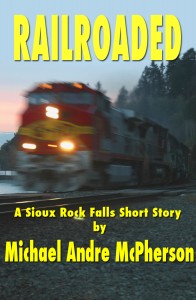Apparently Barry Eisler just did. Why did he walk away from this lucrative book deal with St. Martin’s Press? Because he believes he will make more self-publishing in the long run, particularly on e-book rights.
Eisler is joining a growing number of authors who are walking away from legacy publishers. The problem is that the standard industry contract only gives the author a 25% royalty on e-books, which comes off after Amazon or Smashwords has taken their cut. Then the agent takes 15% off that 25% and it works out that the author is really only getting 17% of the e-book price.
Why accept that little crumb when an author can sell their novel through Kindle and get a 70% royalty? No agent or publisher required. In fact, how can publishers defend such a huge cut when they don’t need a printing press, trucks or a delivery network for e-books?
Up until now they’ve claimed that branding can save their publishing model–that readers will flock to a legacy publisher’s books because there are too many lousy self-published books to sort through. But the truth is that the internet has its own filters, like the book bloggers who have made Amanda Hocking the new internet writing star.
Publishers are not obsolete, but they need to embrace the future and recognize that things have changed for the better. E-readers have more people buying books than they have in a decade, and this should be a good thing. Desperate attempts by legacy publishers to keep e-book prices high in order to stall the e-revolution will fail. Refusing to give authors a fair cut will cost them content and market share.
Eilser wisely draws a parallel to railroads in the 1950s just as the interstates were under construction. The railroads thought they were in the railroad business, but actually they were in the transportation business. Once large trucks became a viable option, many railroads folded. The smart railroads adapted, combining trucking and rail, adjusting prices and expectations and finding the niches they could still fill.
Because of my film industry background, I’m reminded of Kodak and Fuji film back in the 90s. Even a camera assistant like me knew that high definition digital video was coming, but Kodak thought they were in the film stock business and tried to fight the change by producing better and better film stocks. They achieved some amazing things with their 800 ASA film stock, but it couldn’t stop the slide to cheap digital.
Fuji knew they were in the image capture business and went aggressively after the digital video business. Their CEO got an award a couple of years ago for keeping Fiji successful through this upheaval.
I was in Kodak’s home town–Rochester, NY–in 2006. It’s the only time that I’ve seen an empty ten-story office building. I’m talking about a modern glass and steel office building. Kodak did follow Fuji’s lead into digital and has survived, but it was gut-wrenchingly painful to watch, and a lot of hard working people lost their jobs in the process.
Publishers should be in the business of selling books, not pulped dead trees. Some publishers will recognize this and adapt to e-books and thrive. Others will go down. It doesn’t have to be this painful.
 Railroaded tied for second in the 2005 Great Canadian story contest. How three judges tied for their second place vote I’m not really sure, but hey, I’ll take it.
Railroaded tied for second in the 2005 Great Canadian story contest. How three judges tied for their second place vote I’m not really sure, but hey, I’ll take it.
